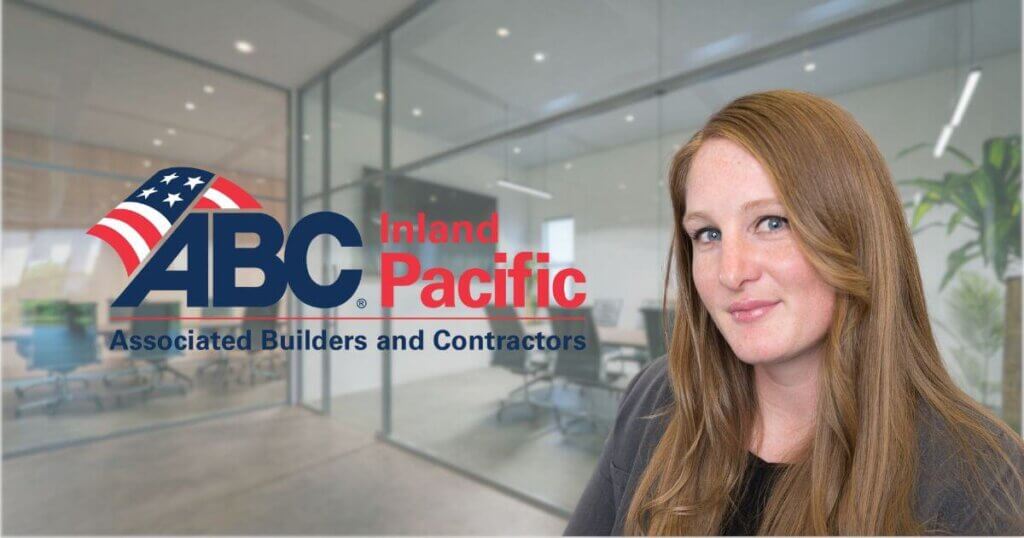
Sarah Cottam didn’t set out to become a leader in the construction industry. In fact, she wasn’t sure what she wanted to be at all. Her path was anything but conventional—starting in a recycling center, battling addiction, and ultimately finding herself in a position of influence as President and CEO of the Associated Builders and Contractors (ABC) Inland Pacific Chapter. Through perseverance, faith, and an unshakable belief in merit-based success, Sarah has transformed her career and the lives of those around her. Her story is one of resilience, reinvention, and a relentless drive to create opportunity for others in an industry that often overlooks the human element underneath the hard hats.
UTHH: Sarah, let’s start from the beginning. How did you find yourself in the construction industry, and what led you to leadership?
Sarah Cottam: Honestly, I had no idea what I wanted to do. I started in a recycling center, buying and selling non-ferrous metals. I worked the machines, operated a baler, and got my hands dirty every day. At some point, I just thought, “I want to be a girl again!” So, I went back to school thinking I might even buy the recycling center someday. I took business classes but realized I couldn’t even type properly, so I took a keyboarding course. My instructor asked me what I wanted to do, and I said, “I think I want to be a boss.” She laughed and told me to start at the bottom and work my way up.
I followed that advice and landed an administrative assistant and events coordinator role at ABC. At the time, I knew nothing about construction. But I loved event coordination, so I took the job. Within a year and a half, I was given an apprenticeship program to figure out. Then I became Director of Workforce, then VP of Member Services. ABC is a merit-based organization—if you work hard, you move up. Eventually, I became President and CEO.
UTHH: That’s an amazing trajectory. But I know your journey hasn’t been without challenges. Can you share your personal struggles and how they’ve shaped your leadership style?
SC: Absolutely. I’ve been sober for 15 years. Addiction runs deep in my family—my mom got clean after I did, my dad was an alcoholic until he passed, and my uncles have spent their lives in and out of prison because of drugs. I was in a terrible place. I lived in my car. I went to jail. I did things I’m not proud of to support my addiction. But I got out of it, and I don’t even recognize that person anymore.
What’s powerful about ABC is that it aligns with my values. This industry talks a lot about safety, but what about the kind of safety that ensures people can come back to work whole? Mental health and addiction are major issues in construction. I’ve seen the statistics, and I’ve lived them. That’s why I advocate for total human health—I know what it’s like to feel like nobody cares. ABC took a chance on me despite my past, and that fuels my leadership. I want to give others that same opportunity.
UTHH: Who have been your biggest influences in your career?
SC: First and foremost, Suzanne Schmidt. She was the CEO at ABC while I was moving up the ranks. She believed in me when I didn’t believe in myself. She used to tell people, “I might be CEO, but Sarah is the quarterback.” She gave me agency to operate within the job, and the ability to fail along the way. That gave me the confidence to step into leadership.
Then there’s Brian Taylor, an ABC member who once asked me where I saw myself in five years. I told him, “I’m going to have your job.” He’s checked in with me ever since, asking, “Are we there yet?”
Another ABC chapter president, Michelle Daugherty has also been an incredible mentor. She saw my potential and pushed for me to move into leadership. And finally, my coach, Jesse Johnson. ABC invested in me by hiring him to help me grow as a leader. He helped me work through old traumas and shaped how I lead today.
UTTH: That’s an incredible support system. Let’s go back to something you said earlier: How important is failure?
SC: The most important. I’ve failed in significant ways—personally and professionally. But true failure happens when you quit trying. I’ve lived rock bottom. I know what it feels like to lose everything.
I used to believe that my perspective was the only perspective, and if I didn’t know the answer or if I wasn’t the one to provide solutions, I was a failure. But I learned how to be a leader because I was allowed to fail. I surround myself with people who are experts in areas I’m not. Now, I feel like I’m the smartest person in the room. Because I’m not the smartest person in the room.
UTHH: What accomplishments are you most proud of?
SC: Becoming a CEO at 36 is huge, especially without a traditional college degree. My two-year business technology degree didn’t prepare me for this job—I learned everything on the ground.
Another is my sobriety. Every September, I celebrate another year. That’s a massive personal accomplishment.
And professionally? Transforming ABC. When I started, we had one CPR class and one workers’ comp class per month. We run a full-blown education program with four to five classes a week, generating hundreds of thousands of dollars in non-dues revenue.
We also built a workforce development pipeline that connects high school students, veterans, and people in recovery to jobs in construction. Instead of sending out a survey, I decided to do things differently—I got out there and met people face-to-face. In one year, I scheduled 80 meetings with our ABC members, sat down with them, and asked them straight up: What do you need? I hand-wrote questions about political advocacy, workforce development, education, and safety, and the overwhelming response was: “Sarah, we need people.”
But here’s the thing—journey-level workers don’t just appear out of thin air. You have to build them. So, I started looking at how ABC could actually help make that happen. That’s when I got involved in high schools, treatment centers, and veteran programs, digging into the seven main entry points into the construction industry.
When I started at ABC in 2014, we had zero workforce development initiatives. Apprenticeship programs had shut down in 2004, and nothing had replaced them. So, I built a program from scratch that connected people looking for opportunities with the members who needed them. It grew fast. Now, every year, we host Trades Night—an event that brings in 1,000 to 2,000 people who get to experience hands-on activities, meet employers, and walk away with real job opportunities.
I’m not a staffing agency, but I know how to connect the dots. I’ve talked to thousands of kids, handed out thousands of cards, and worked to bridge the gap between those who want in and the companies who need them. Seeing it all come together? That’s the best part of what I do.
UTHH: What’s next for ABC Spokane?
SC: We just moved locations, which is huge for us. And part of the reason for that move was to grow—to expand what we’re already doing. Before, we had one training room, and my two directors were constantly battling over it because we couldn’t run multiple classes at once. Now, we have the space to increase our training programs by 50%, which is a game-changer.
On top of that, we just submitted for state approval on a pre-apprenticeship program. I spend so much time talking to students about careers in construction, but we’ve been losing too many of them to McDonald’s or other industries before they ever make it into the trades. This program is designed to fast-track them into a registered apprenticeship, giving them a direct path into the workforce. We’re expecting approval by April, and once that happens, we’ll be able to retain more young talent and connect them with real opportunities.
Bringing registered apprenticeship back to ABC Spokane is a huge goal. It’s a three-to-five-year plan, but I believe it’s necessary to keep our contractors competitive in this state. That said, apprenticeship isn’t for everyone, and that’s okay. Our job is to make sure that for those who do want it, we’re here as a resource to help them get there.
UTHH: Last question—what advice would you give to women looking to enter the construction industry?
SC: Know who you are.
A lot of women walk into this industry feeling like they’re already at a disadvantage. But the men I work with? They’re figuring it out just like we are. You have a perspective that matters. Your background, your education, your voice—it all matters. Walk into every room knowing you belong there.
For more inspirational stories like Sarah Cottam’s, plus the latest in workforce development, training programs, and industry insights, subscribe to our newsletter and follow us on social media to stay ahead in construction.


